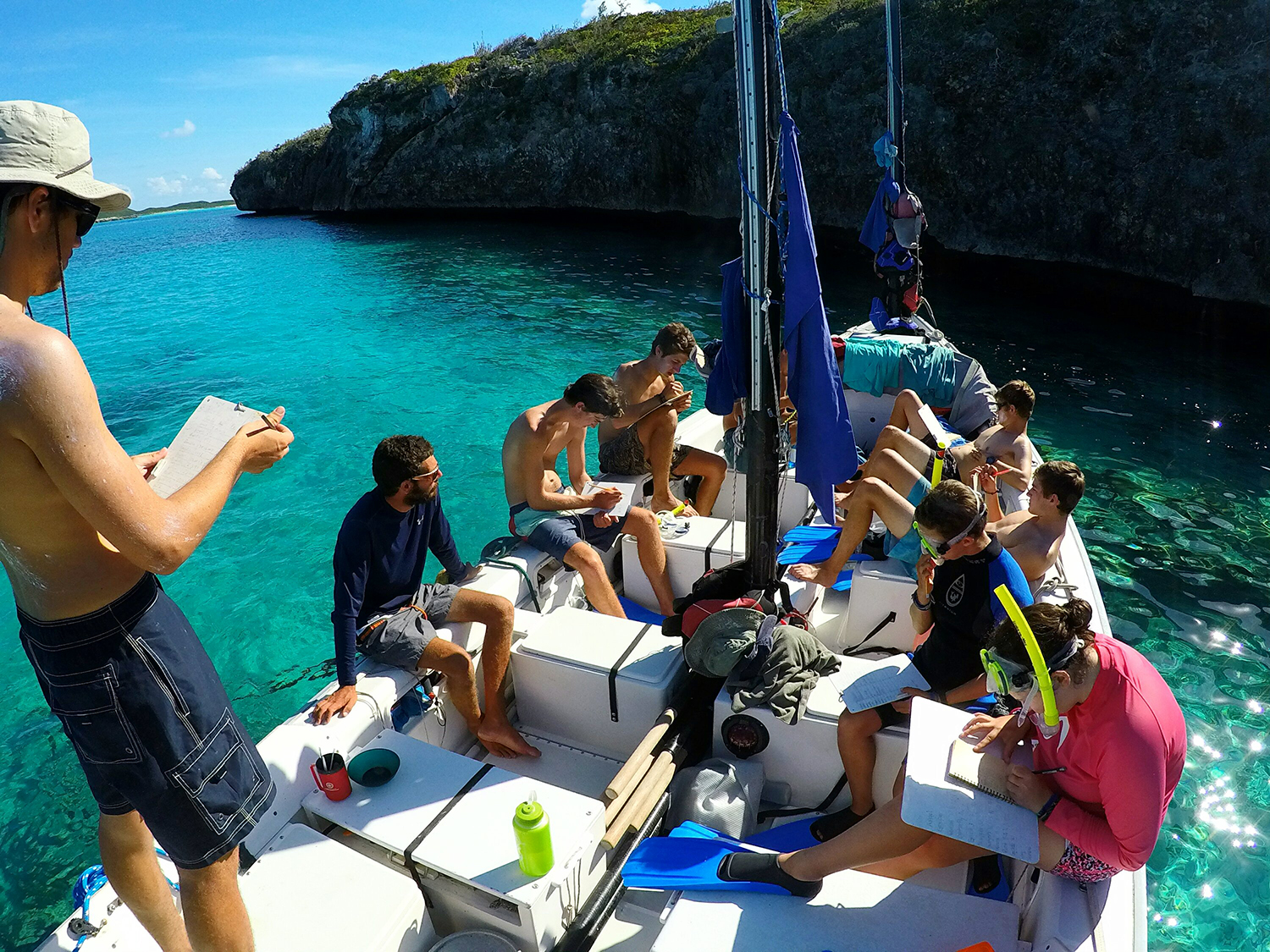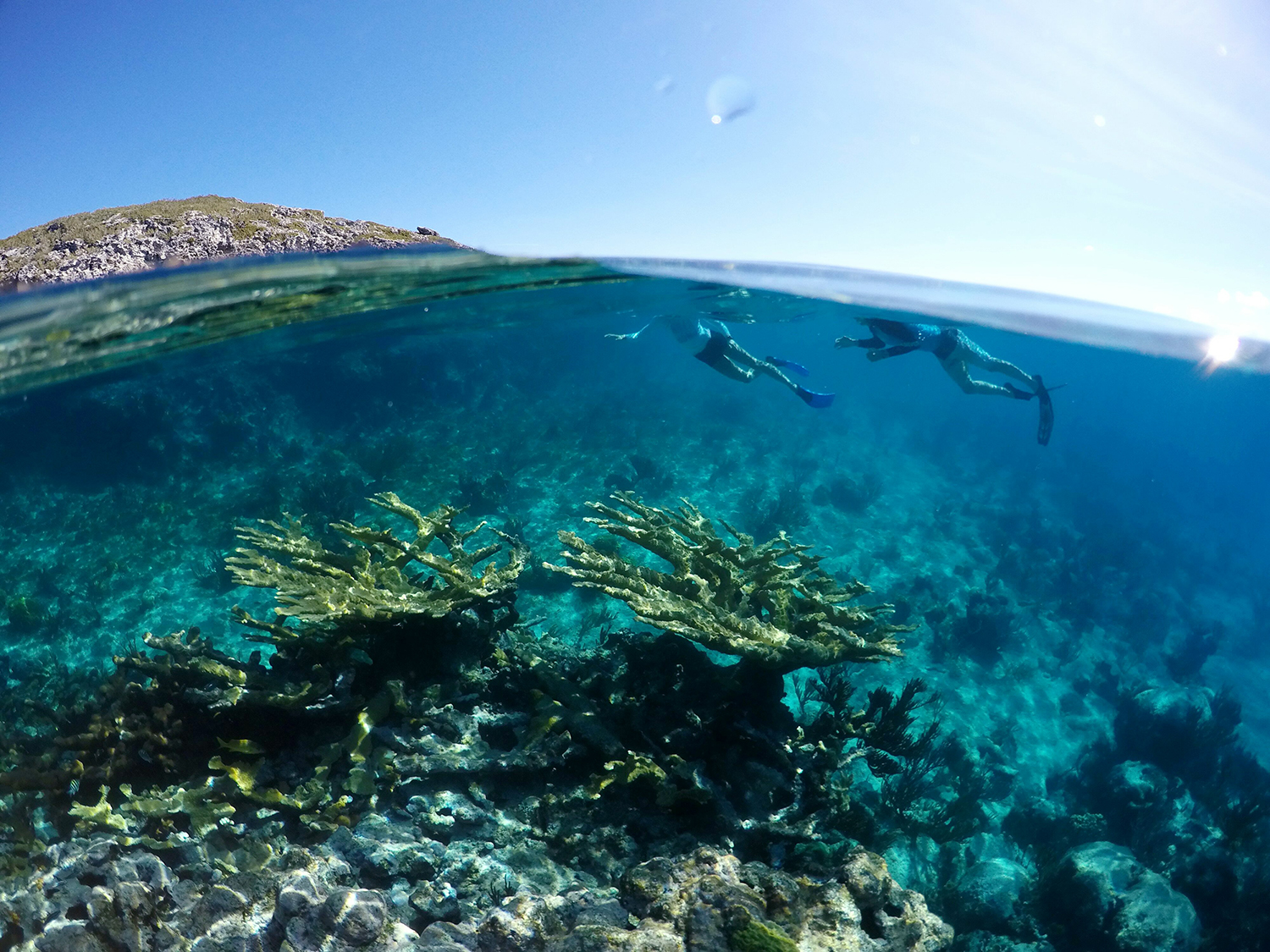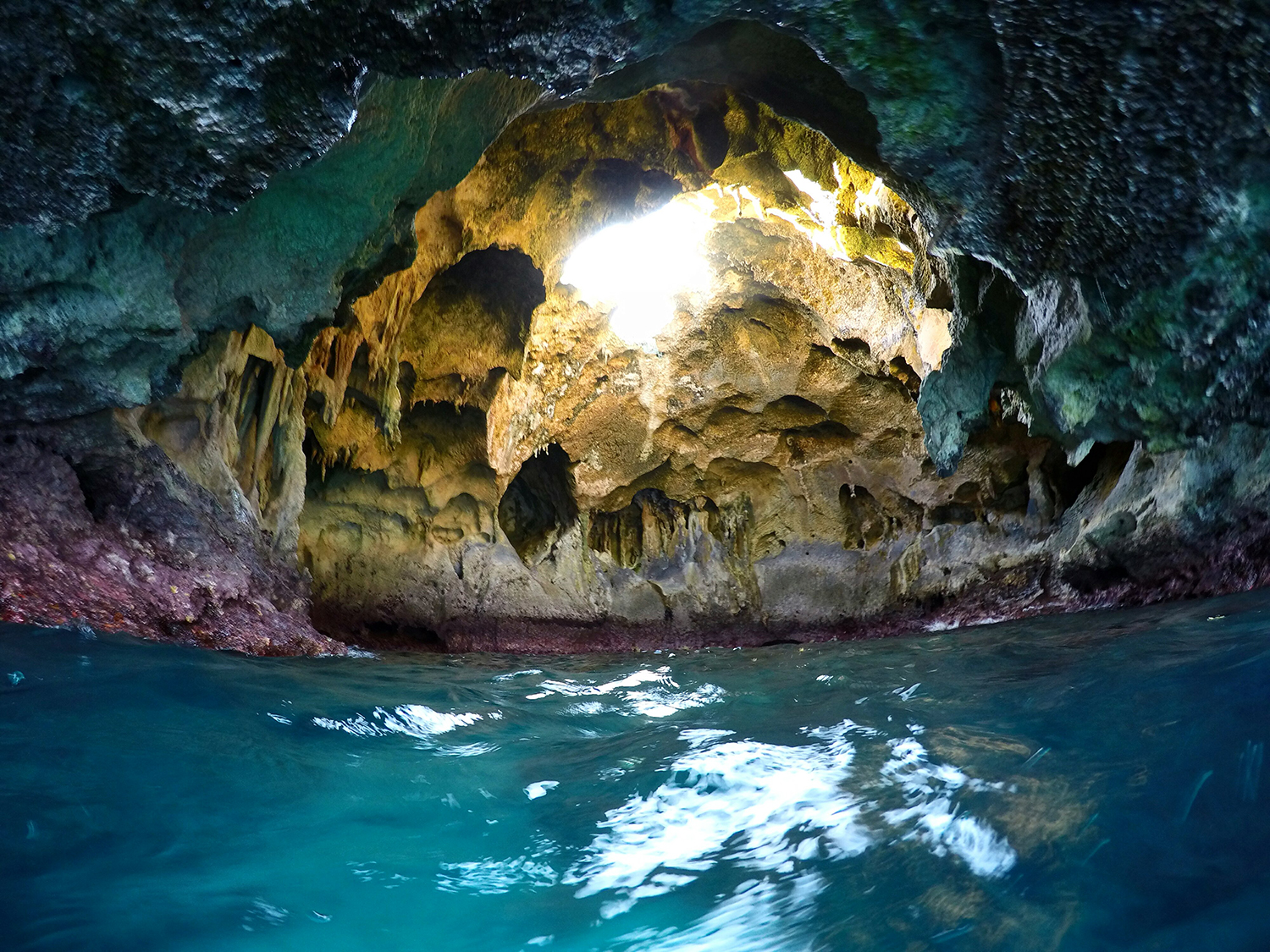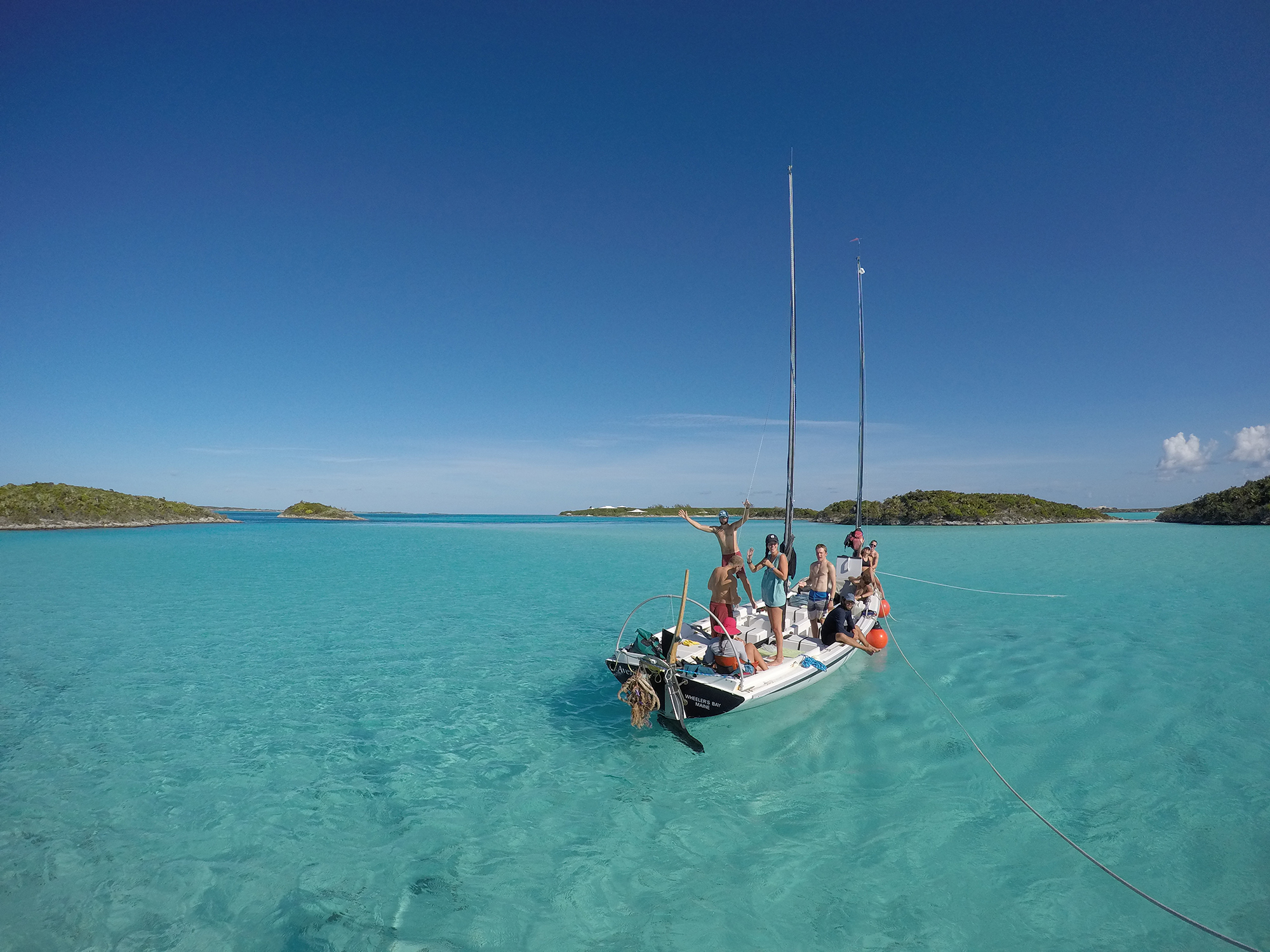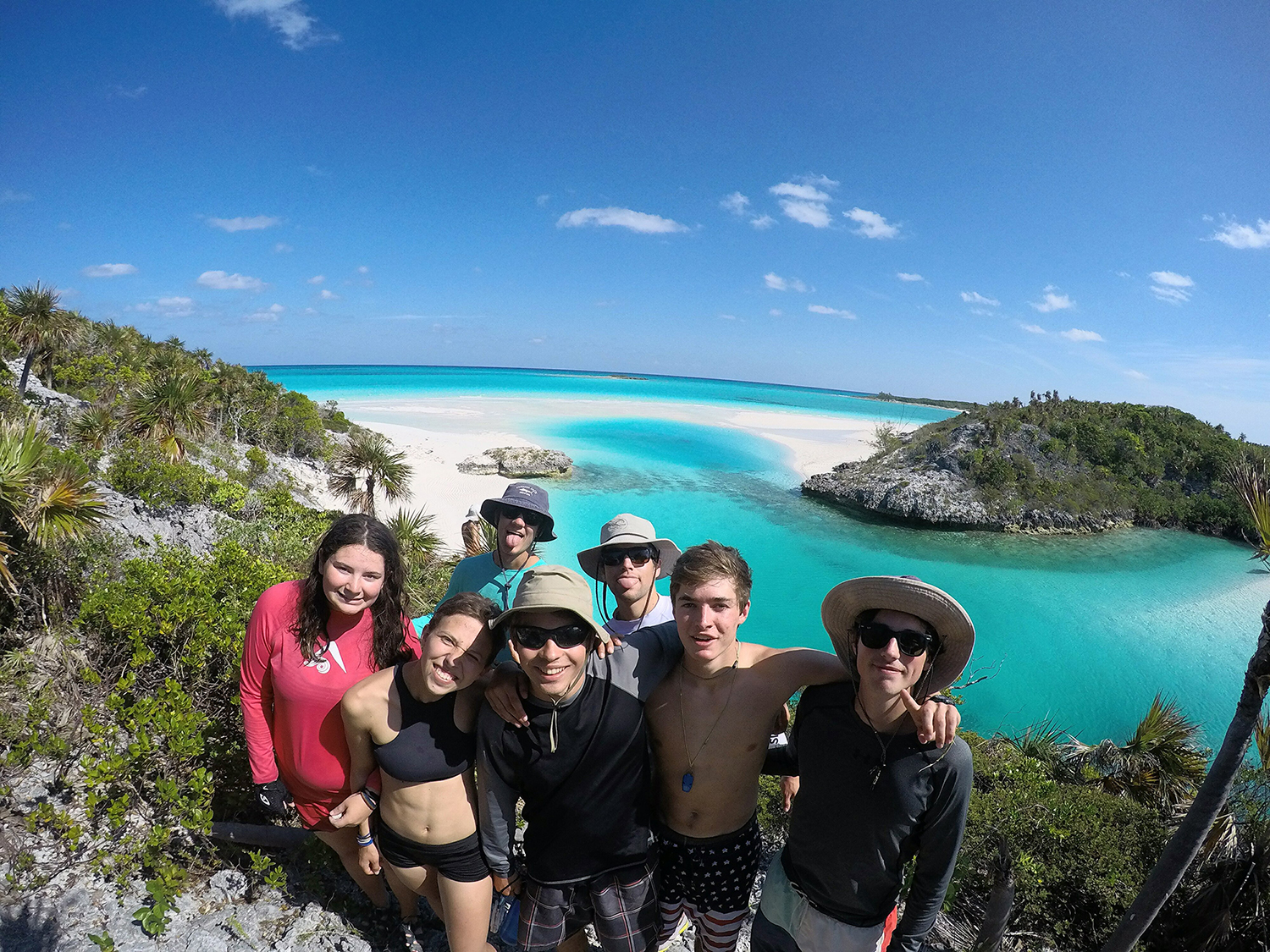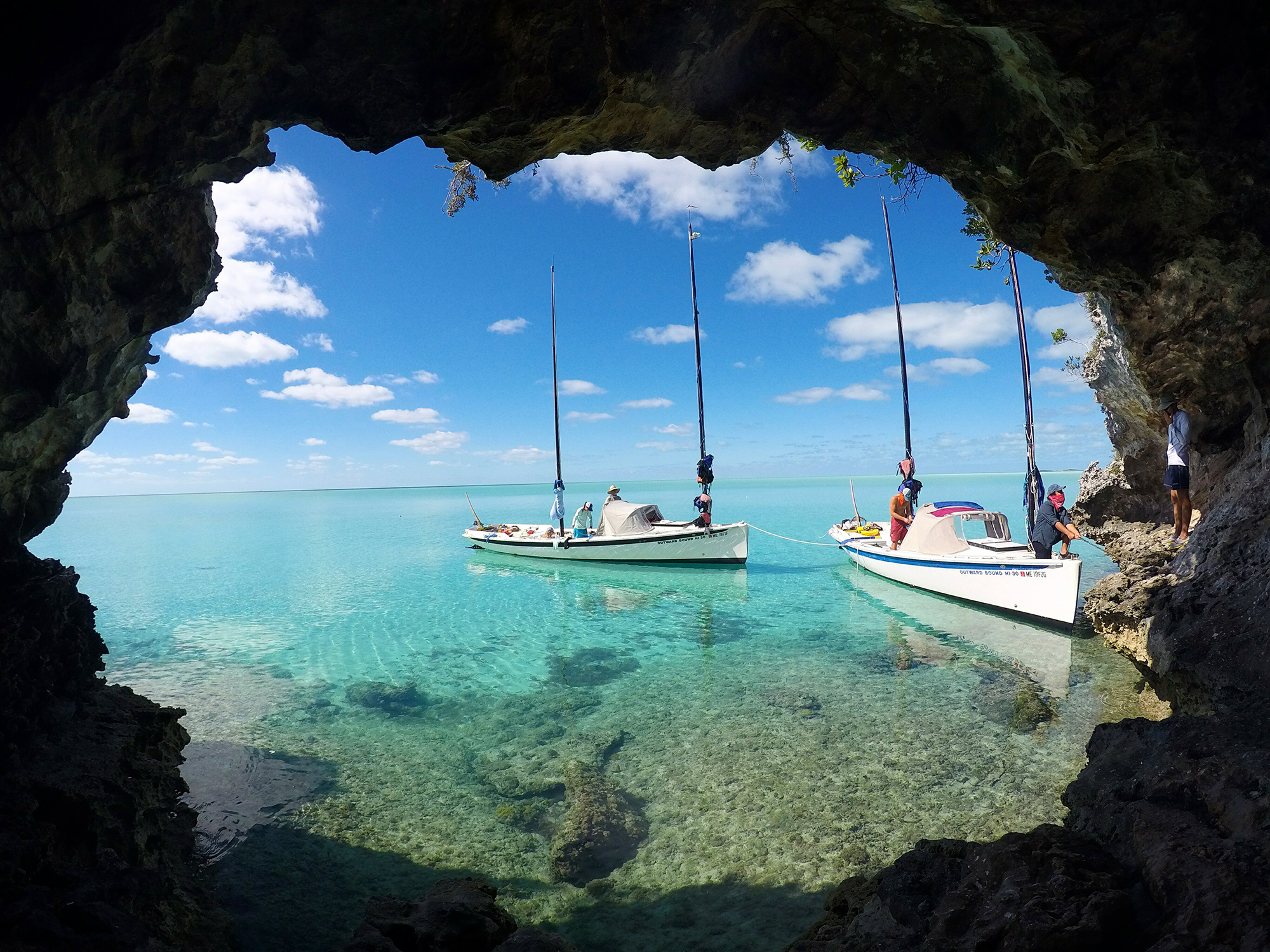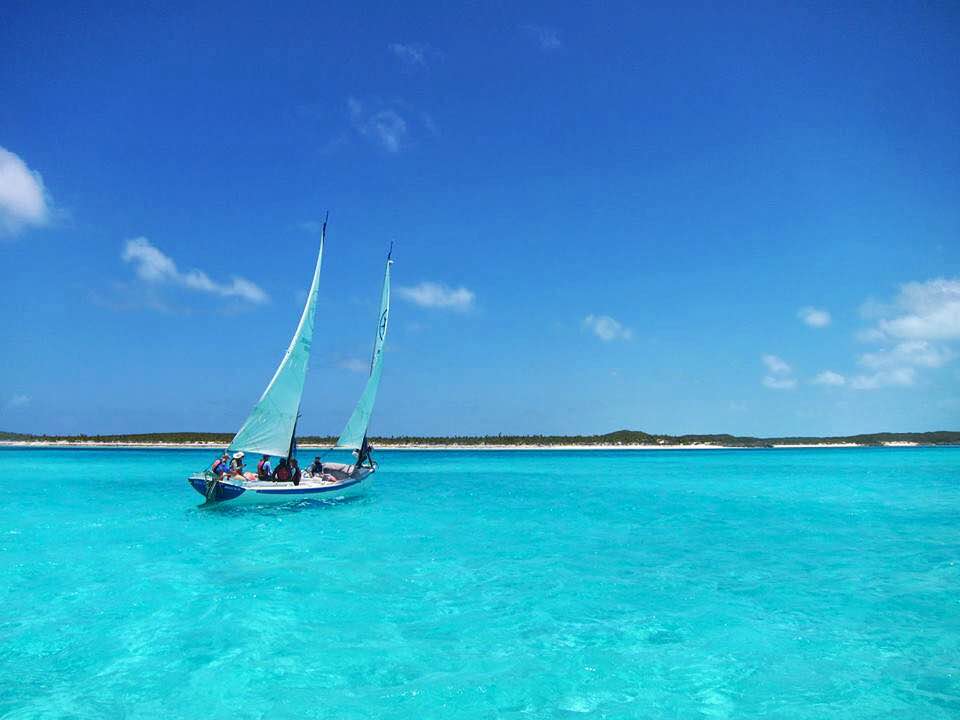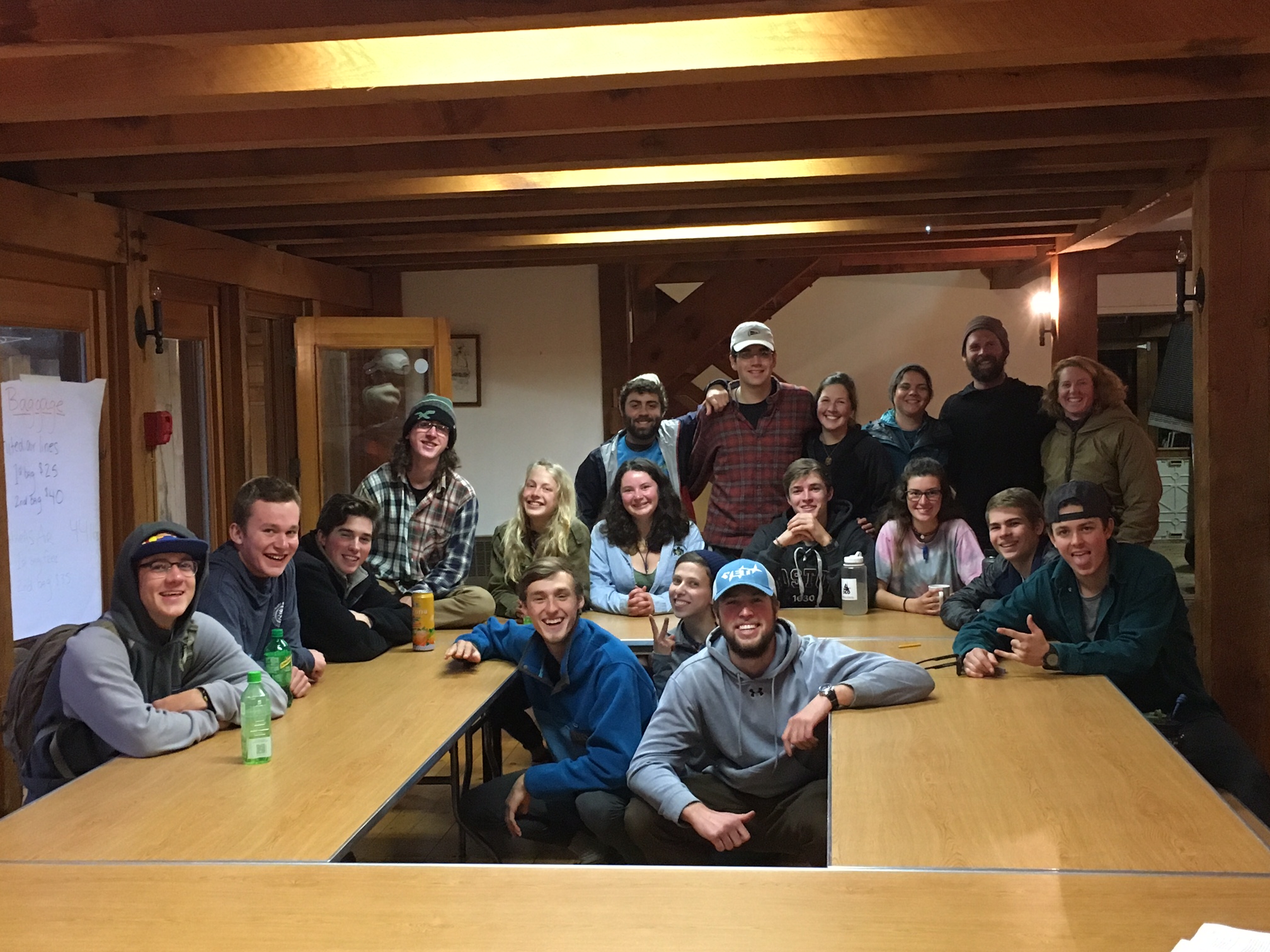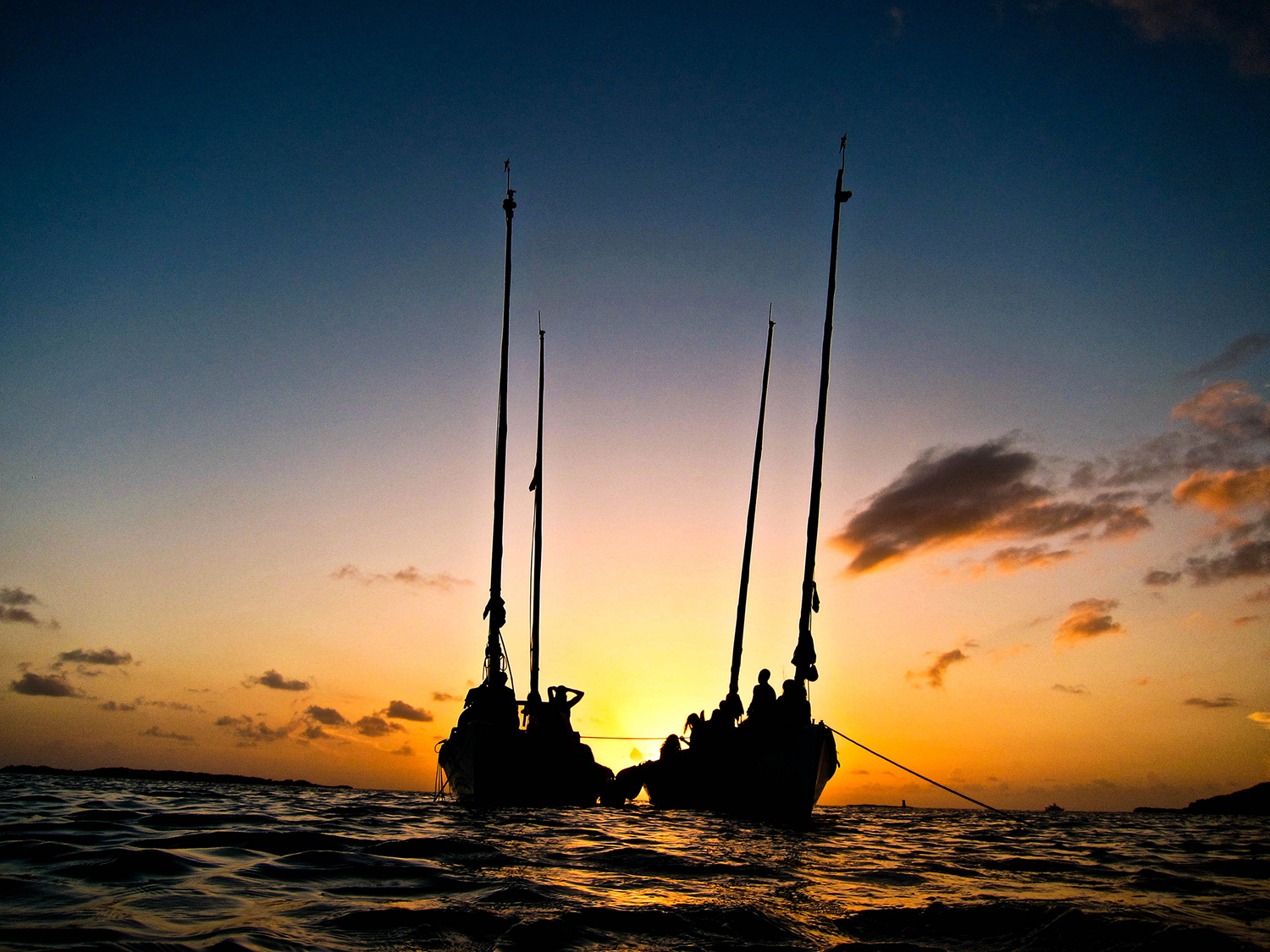Category Archives: Sailing
HIOBS Update #2
HIOBS group prepares to head out
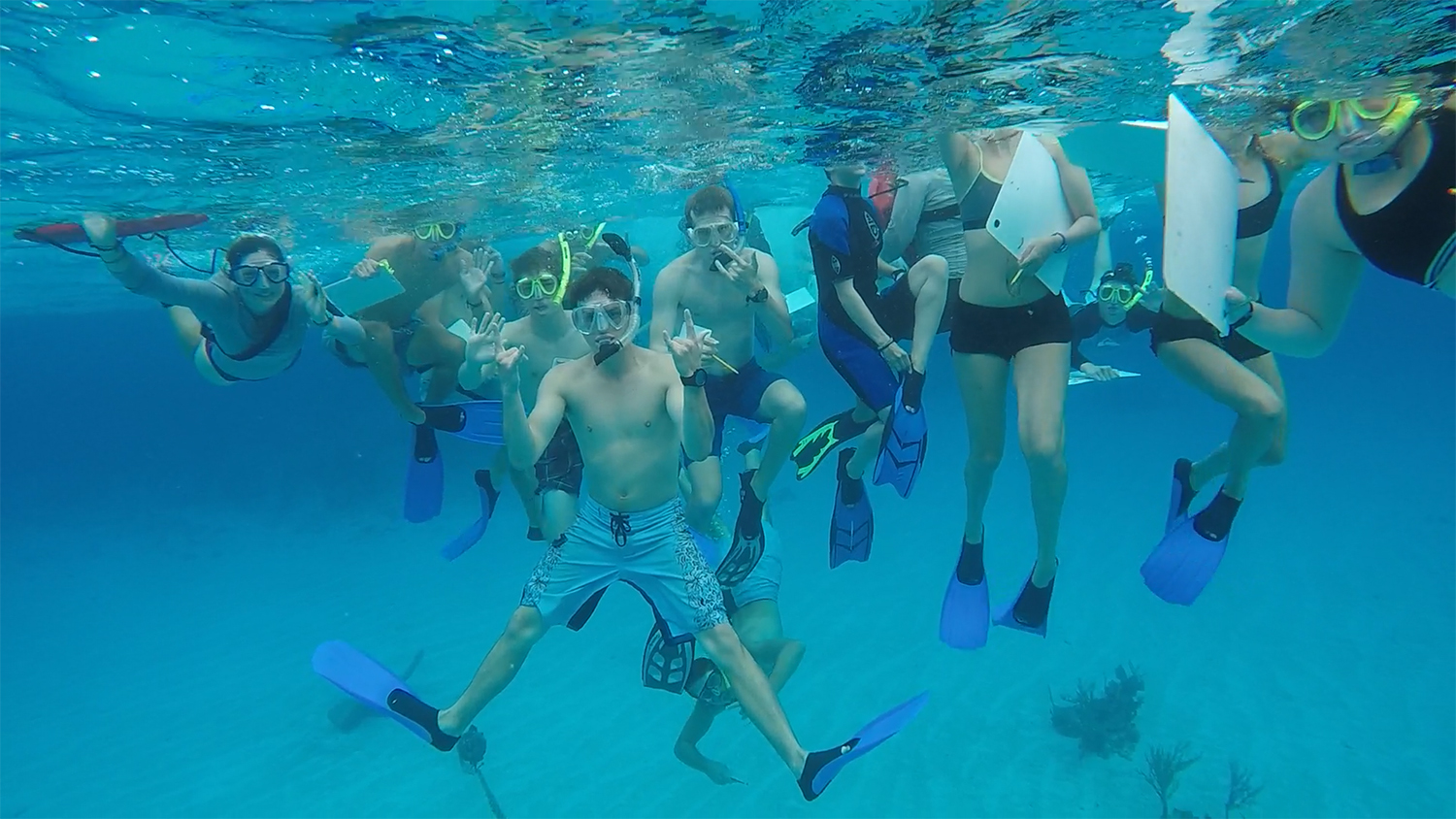
Today marks the start of the Hurricane Island Outward Bound Maine to Bahamas sailing expedition to the Exuma Cays! After 10 days on campus learning about sustainability, the marine environment, and research skills, the students are ready to embark on their 18-day research expedition. They’ve also participated in many service projects over the past week with Deep Creek Middle School. From helping out with after-school sports and the Open Learning Center, to facilitating team building activities and a beach cleanup, to helping out at the community garden, these students have made a huge impact on our community!
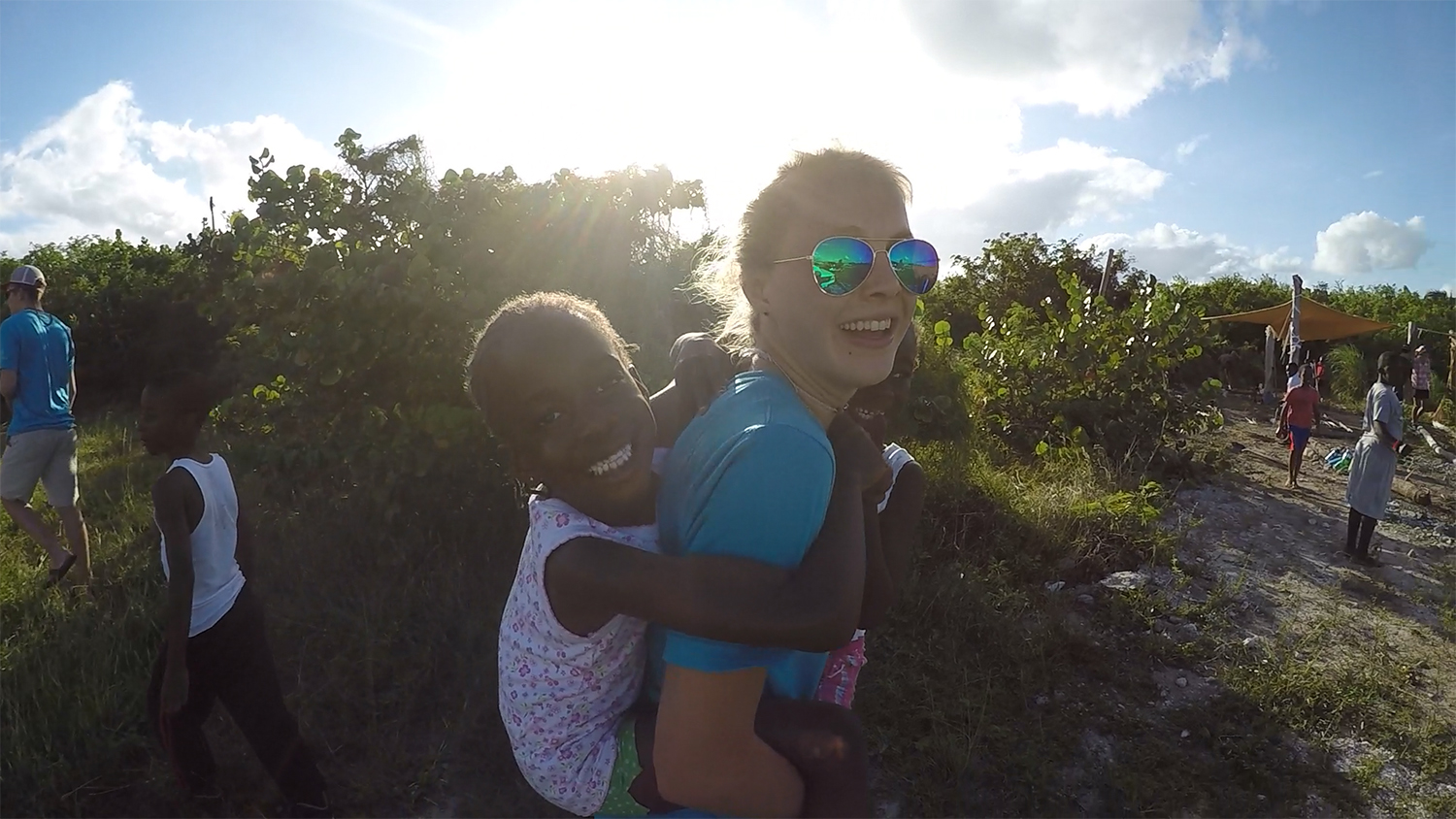
Here’s a quick note from the students about their time here thus far and what their expedition to the Exumas will bring:
“Our trip to The Island School and the Cape Eleuthera Institute is part of an Outward Bound 80 day Environmental Science gap year program. The Island School has not only been a great experience but also an amazing learning environment. The lifestyle at the Island School included ideals and ethics that are similar to those of Outward Bound and to our own. The efforts for sustainable living became a huge part of daily life on campus. From taking navy showers (60 second showers) to an intricate aquaponics system, the efforts made here to save our world for further generations is inspiring.
Another part of daily life here is a daily early morning workout, which is sometimes difficult but vital. These workouts boost both our physical health and advance our work towards a final goal of a 1.7 mile swim.
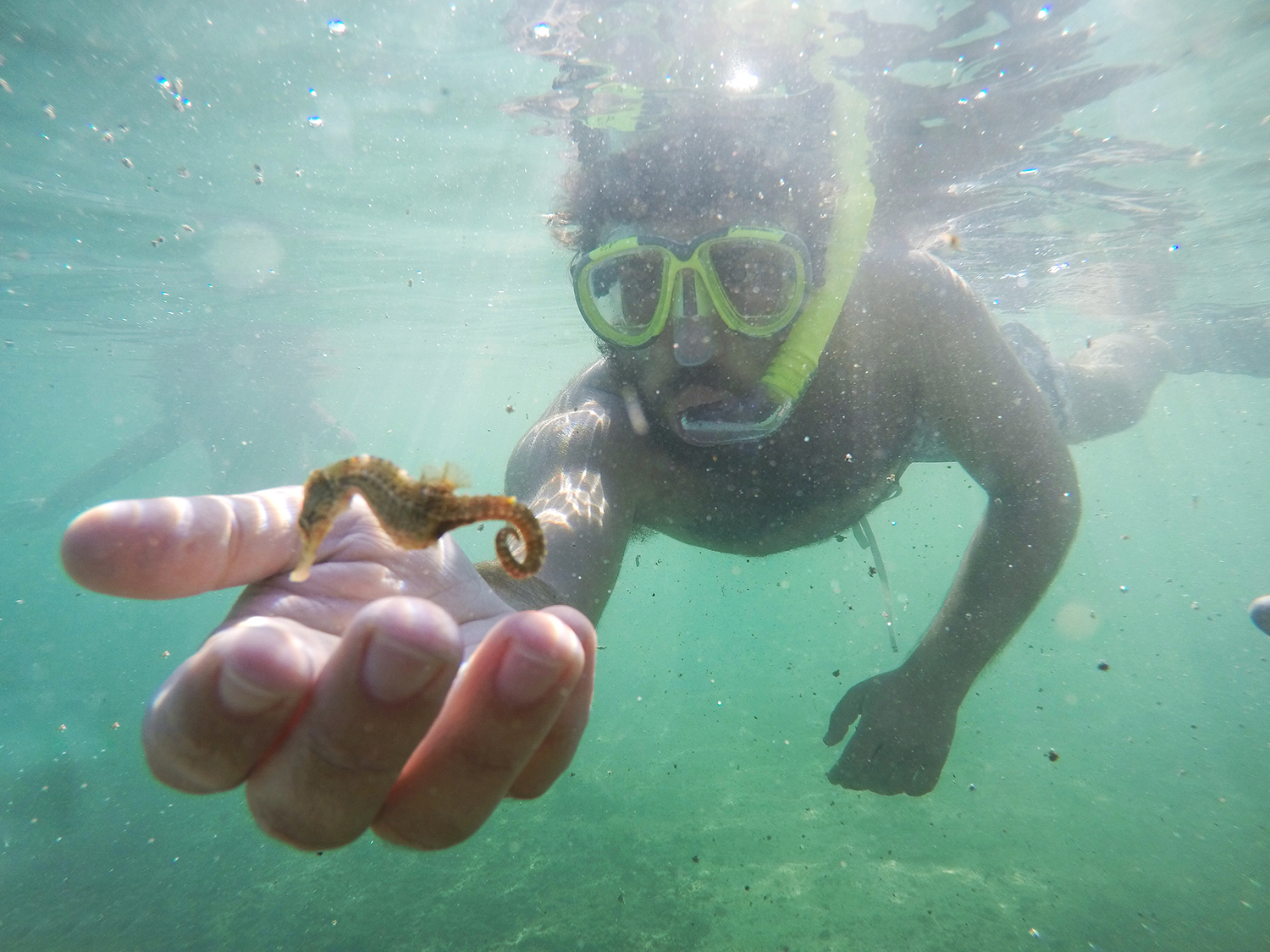
Hands-on learning is emphasized at the Island School. Our lessons include snorkeling, swimming, research, and engaging lessons with PhD scientists. The enthusiasm around this type of learning was both fun and effective, we all leave the classroom with a common understanding of the state of the world. These experiences provided us with a new way of learning and challenged us to apply our newfound knowledge.
The main portion of our expedition will be focused on adding to a long-term data set monitoring the health of reefs in The Bahamas. We, as a group, have been trained in research skills while on campus and are embarking on our 18 day sailing voyage, during which we will apply our new skills throughout the Exuma Cays Land and Sea Park. One group will be focusing on the growth, population, and health of Elkhorn Coral (a vital part of the coral reef ecosystem) in the Exumas, while the other will collect data on fish populations in the reefs. We are extremely excited and can’t wait to experience this new type of expedition and apply our new knowledge!”
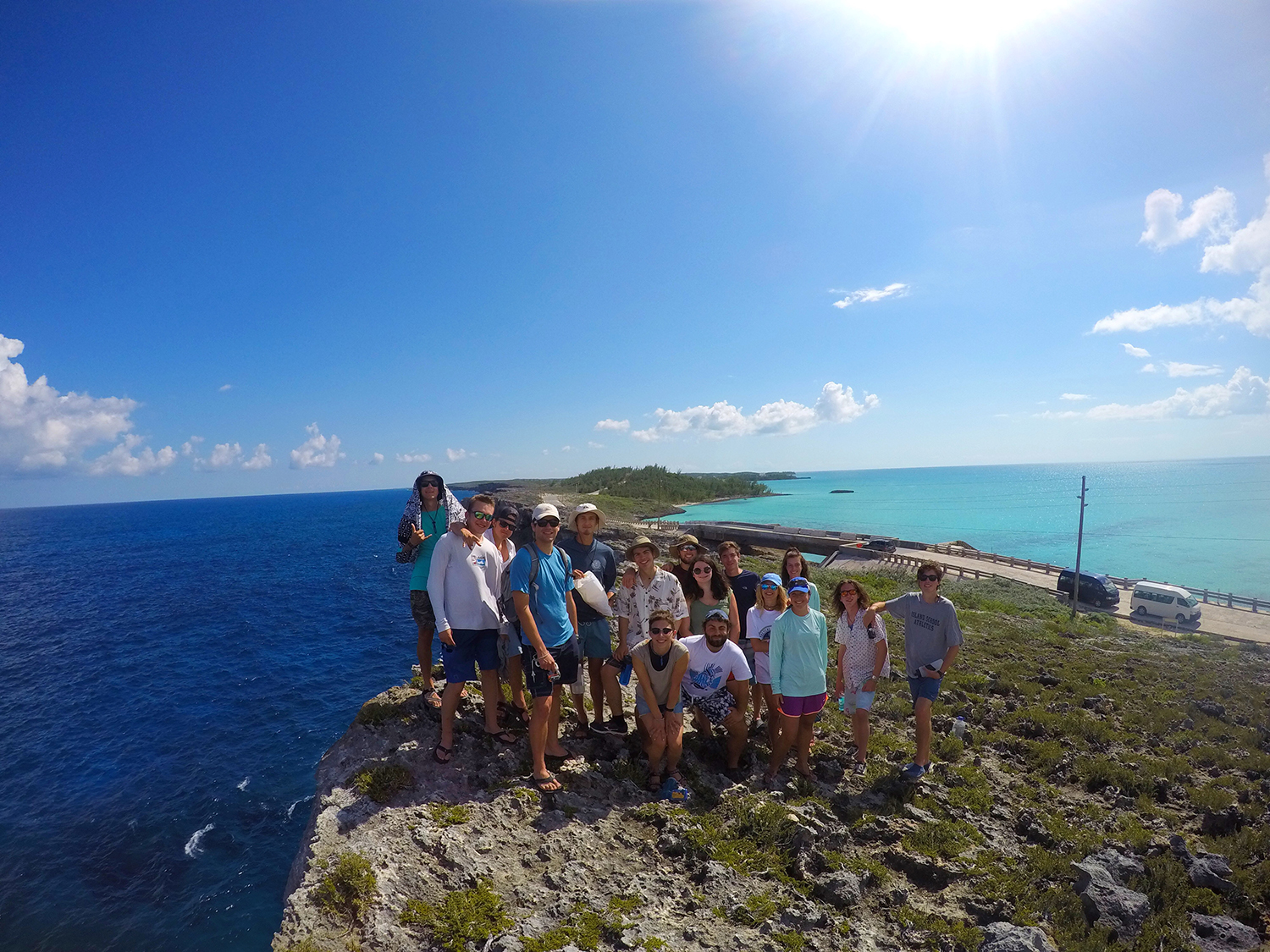
Welcome Hurricane Island Outward Bound Fall Gap Year Students!
This Saturday, 15 students will be joining us on campus for a first-of-its-kind program taking place over the next month. This program is similar to the summer term expeditionary program but has some key differences: these students are all on a gap year and thus are in the 18-22 year old range. They started their fall gap semester at the HIOBS campus in Maine in September, and since then have been learning about leadership, wilderness skills, leave no trace principles, teaching methods, earning their Wilderness First Responder certifications, and completing two expeditions- a canoe and a backpacking trip. Pretty awesome students right? We think so too.
Their time on our campus will be the final leg of their fall gap year journey, which will be the marine research and sailing expedition portion of their experience. For the first part of their trip, they will be on our campus learning about marine science, developing field research skills with CEI researchers, and prepping for a sailing expedition where their newfound knowledge of the marine environment will be put to use. They will be heading across the Exuma Sound in two 30-foot sailboats where they will spend 19 days collecting data in the beautiful Exuma Cays. The data collected by the students will contribute to long term projects monitoring populations of reef fish and elkhorn coral.
After returning from the research expedition, the students will have a week back on campus to put together final research presentations based on the data they collected and to complete a final swimming event. After that, it will be time to celebrate a successful fall gap year semester and leave our campus with a wealth of new knowledge and skills to hopefully help guide their future endeavors.
We could not be more excited to welcome this pioneering group of students to our campus, and we hope you follow along on their adventure by checking back here for updates over the next month!
Expeditionary Summer Term 2016
“In order to discover new Ocean you need the courage to leave sight of the land.”
-Andre Gide
Lying on the decks of the Sharpie Schooners we watched the sun peek over the wide open expanse of Caribbean Sea. Our morning routine began like this most every day. Wake up at six, put away the sleeping boards, sing the Bahamian national anthem, jump in the water for a morning swim, climb back on the boats for breakfast and chores. Finally when tasks were completed and crew members were dressed in full sun protection, the sails came out and we were off.
Our expedition started on the 22nd of June when the expedition team took up residence at the newly constructed basecamp, located behind Water Polo Cut, which features tent platforms, an outdoor shower, fire pit, and a “private” beach. After dinner and some time to settle in, we circled up in the boat house to discuss expectations. That first night we acknowledged what an amazing and challenging opportunity this course would be for everyone involved.
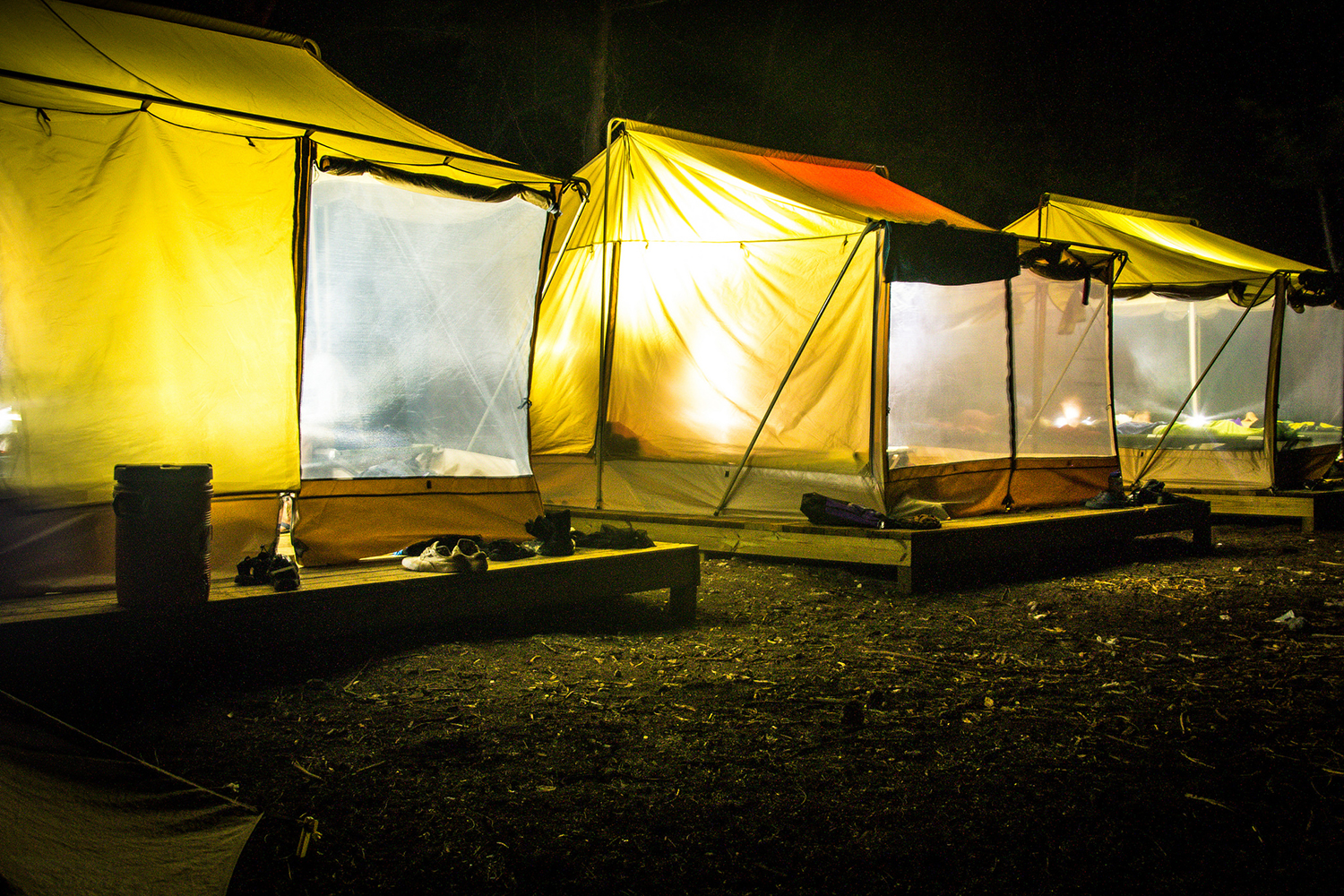
It is my strong belief that to adventure in the natural world one must be present. One must establish a sense of place, a bond and relationship with the land. Place-based education challenges the meaning of education by asking seemingly simple questions: Where am I? What is the nature of this place? Students are presented with the opportunity to become a part of the broader community rather than an indifferent observer. The Island School promotes this type of learning, and this course was no exception.
We spent the first week of the term on campus on learning the basics of sailing skills, marine ecology, and expeditionary living. We were pioneers plotting our journey into uncharted territory. Finally, we were ready. And so, we went.
Our expedition departed Eleuthera in the pre-dawn hours of June 30th, setting the course west 30 nautical miles across the rolling waters of the Exuma Sound. A true epic crossing was had, complete with compass and charts, waves washing over the gunwales, deep blue water, and a touch of seasickness. After eight exhilarating hours, land was sighted. Shortly thereafter we arrived at Halls Pond Cay, our first stop in the Exuma Islands.
Anchored off a white sand beach in turquoise water, an initially exhausted crew got second wind. Our first afternoon in the Exumas was spent relaxing in the shade of trees, and snorkeling the nearby reef. The students and Island School teachers were equally thrilled by the abundance of tropical fish and other marine species. Every so often someone (mostly me) could be heard exclaiming in excitement through their snorkel, a practice that continued for the duration of the trip.
The next morning we traveled to Warderick Wells Cay, headquarters of the Exuma Land and Sea Park. We were met by a staff enthusiastic about our endeavor, and happy to spend some time talking with our group. Throughout the afternoon we learned about the marine protected area, fishing regulations, the Bahamas National Trust, and the history of the Exuma Islands. The time spent at headquarters helped the students to conceptualize the importance of their scientific studies on a large scale, and served as the launching point for their research.
At the beginning of the program during our on campus week, students were presented with four on-going research projects through the Cape Eleuthera Institute (CEI), and then chose to take on the project which most interested them. The topics of these projects included Queen Conch, sea urchins, lionfish, and grouper.
The bulk of our expedition was an experiment in living, working, sailing, and researching as a contained unit. It was an experience in self-awareness, group mentality, and leadership. Personal space is difficult to come by on a 30ft sailboat, especially when it is inhabited by eight people. Throughout our trip we all experienced emotional, mental, and physical obstacles. Our true growth lies in the fact that our group learned to acknowledge and deal with personal frustrations, to be vulnerable, and to rely on and trust in each other. After two weeks exploring the Exuma Islands, our crew crossed open water and returned to Eleuthera, following the path we had taken before. But we were not the same.
Reflection, in my opinion, is a key component in realizing and solidifying change. The final component of our expedition was a 48 hour solo. During this time students had the opportunity to sit alone with their thoughts, write in their journals, and rest. While sitting completely alone and in silence can certainly be an arduous task for most, the students came off of their solo time with a new appreciation of their experience and understanding of themselves.
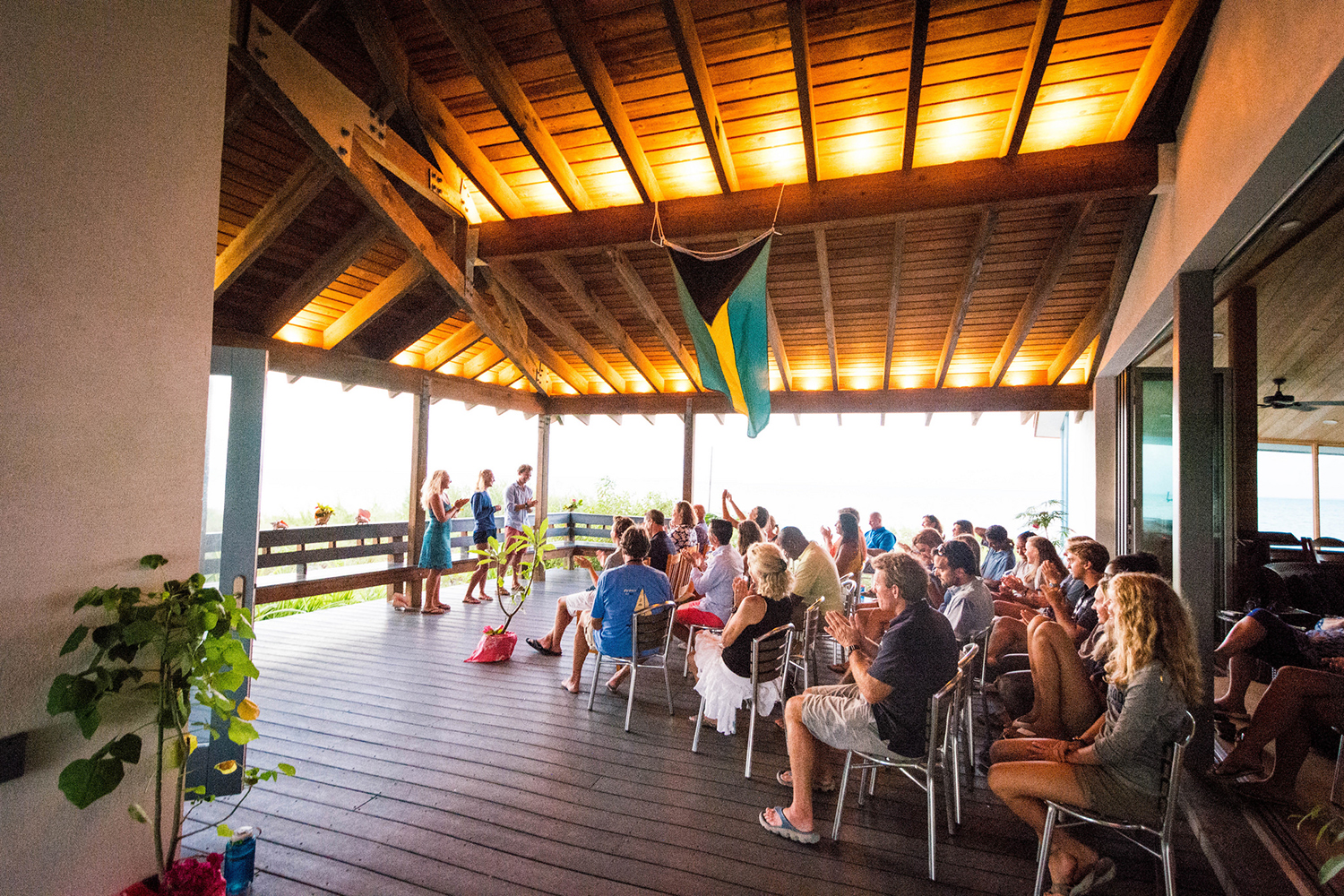
Now that the first ever Expeditionary Summer Term has come to an incredibly successful and joyful end, we can reaffirm our initial thoughts to be true. This program was in fact an amazing and challenging opportunity for everyone involved. Some of the highlights of our final week back on the Island School campus include: the final Epic Snorkel physical challenge, research symposium, Parent’s Weekend, and kook of the day assignments. Our graduation and course celebration was filled with laughter, friendship, and even a few tears.
Throughout the past month our 13 pioneer students gained the means and confidence to approach challenges in all aspects of their lives head on, and I have no doubt that they will continue to do so. When asked on the very last day of the course whether they would do it again, each and every one stopped to truly think it over, and then said yes.
“The pioneer island school expeditionary program was a unique experience never to be relived the same way. Through genuine experience learning and harsh hardships that strengthen your fundamentals. You often find who you are and settle your priorities. Being on campus and living and seeing this beautiful lifestyle is undeniably life changing.” – Sebastian Alvarez, EST 16’

